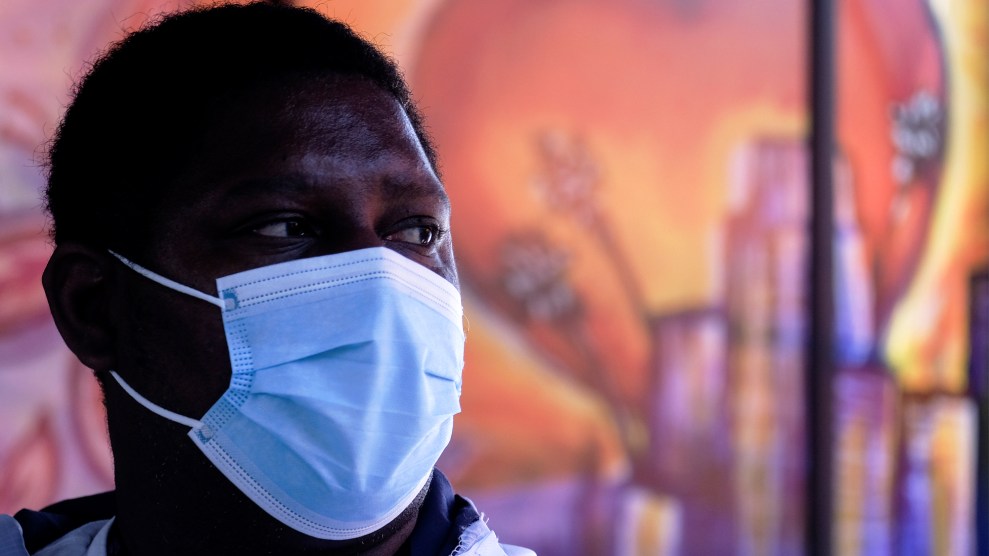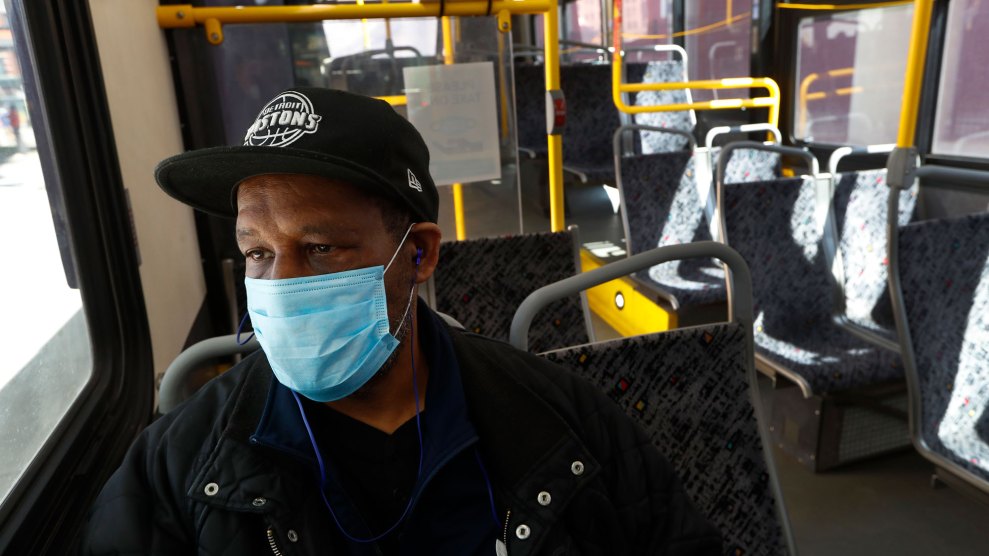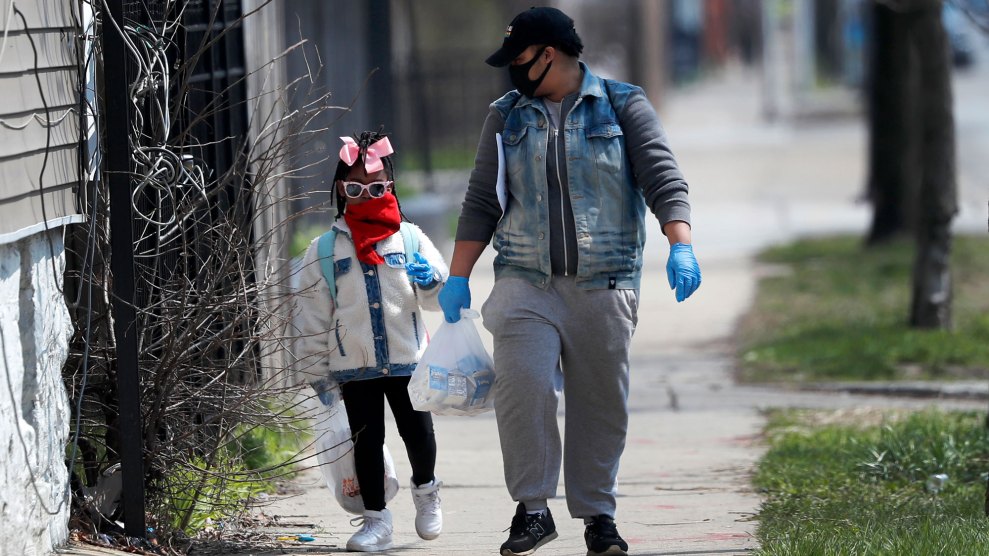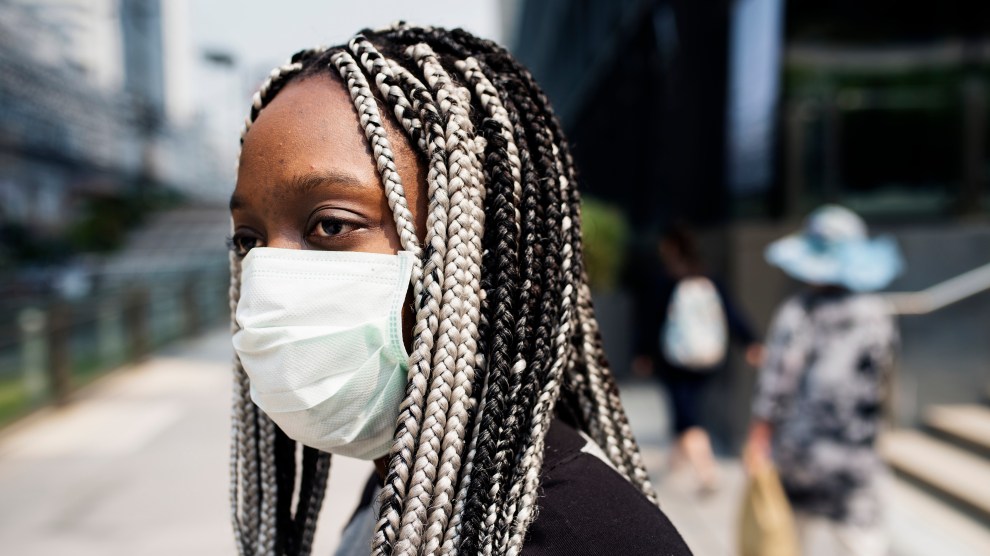
A staff member for a St. John's Mobile Clinic provided workers with free COVID-19 testing in Los Angeles this week.Ringo Chiu/ZUMA
An analysis published by the Los Angeles Times on Saturday reveals that Black and Latino Californians aged 18 to 64 are dying at higher rates than their white or Asian peers, relative to population, as the pandemic continues to highlight deep inequalities across the country.
When accounting for each group’s share of the population, black and Latino patients under the age of 65 had higher rates of fatality than even older blacks and Latinos—although people over 65 still make up the overwhelming majority of COVID-19 deaths. The trend is particularly noticeable among those age 18 to 49, the Times analysis found…
Among patients ages 18 to 49, black residents are dying nearly two and a half times as often as their share of the state’s population. By comparison, black people 65 and older are dying twice as often as their share of that age group. Latino death disparities also go down as patients get older, the analysis found.
The new reporting adds extra numbers to a powerful preliminary analysis performed by my Mother Jones colleagues Eddie Rios and Sinduja Rangarajan published mid-April, which found that Black people overall have disproportionately contracted and died from the coronavirus. In 20 of the 28 states plus DC for which a usable racial breakdown of infection data was provided, Black people make up a larger share of coronavirus infections than they do of the general population.
In 18 of the 23 states plus DC for which a usable racial breakdown of fatality data was provided, Black people likewise make up a disproportionately large share of coronavirus fatalities. In Michigan, Black people are 14 percent of the state’s population but 33 percent of its coronavirus cases and 40 percent of its deaths. In Wisconsin, Black people are six percent of the state’s population but 25 percent of its coronavirus cases and 39 percent of its deaths.
For more charts and data analysis on inequalities revealed by the coronavirus crisis, check out our in-depth reporting, here.



















